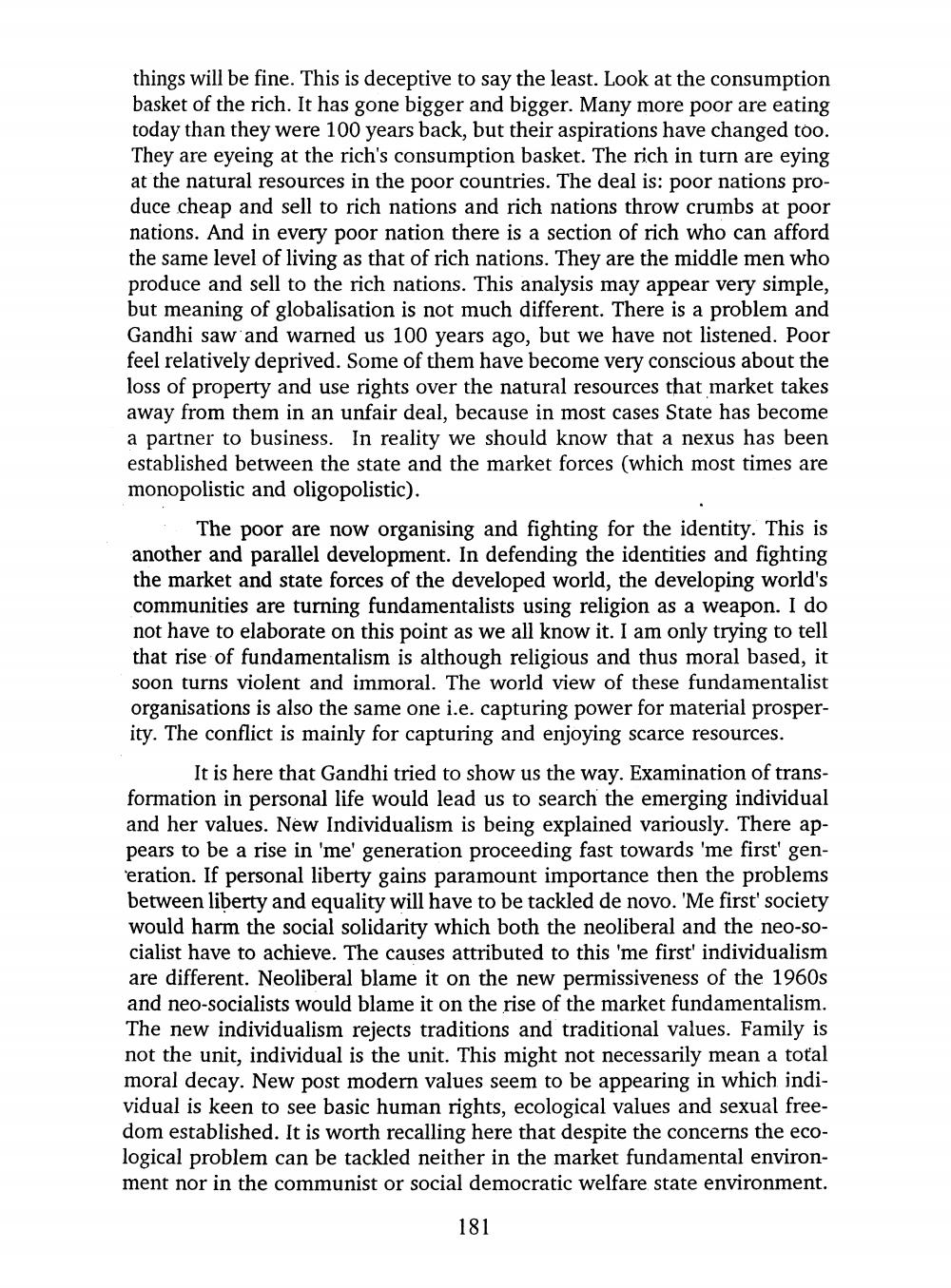________________
things will be fine. This is deceptive to say the least. Look at the consumption basket of the rich. It has gone bigger and bigger. Many more poor are eating today than they were 100 years back, but their aspirations have changed too. They are eyeing at the rich's consumption basket. The rich in turn are eying at the natural resources in the poor countries. The deal is: poor nations produce cheap and sell to rich nations and rich nations throw crumbs at poor nations. And in every poor nation there is a section of rich who can afford the same level of living as that of rich nations. They are the middle men who produce and sell to the rich nations. This analysis may appear very simple, but meaning of globalisation is not much different. There is a problem and Gandhi saw and warned us 100 years ago, but we have not listened. Poor feel relatively deprived. Some of them have become very conscious about the loss of property and use rights over the natural resources that market takes away from them in an unfair deal, because in most cases State has become a partner to business. In reality we should know that a nexus has been established between the state and the market forces (which most times are monopolistic and oligopolistic).
The poor are now organising and fighting for the identity. This is another and parallel development. In defending the identities and fighting the market and state forces of the developed world, the developing world's communities are turning fundamentalists using religion as a weapon. I do not have to elaborate on this point as we all know it. I am only trying to tell that rise of fundamentalism is although religious and thus moral based, it soon turns violent and immoral. The world view of these fundamentalist organisations is also the same one i.e. capturing power for material prosperity. The conflict is mainly for capturing and enjoying scarce resources.
It is here that Gandhi tried to show us the way. Examination of transformation in personal life would lead us to search the emerging individual and her values. New Individualism is being explained variously. There appears to be a rise in 'me' generation proceeding fast towards 'me first' generation. If personal liberty gains paramount importance then the problems between liberty and equality will have to be tackled de novo. 'Me first' society would harm the social solidarity which both the neoliberal and the neo-socialist have to achieve. The causes attributed to this 'me first' individualism are different. Neoliberal blame it on the new permissiveness of the 1960s and neo-socialists would blame it on the rise of the market fundamentalism. The new individualism rejects traditions and traditional values. Family is not the unit, individual is the unit. This might not necessarily mean a total moral decay. New post modern values seem to be appearing in which individual is keen to see basic human rights, ecological values and sexual freedom established. It is worth recalling here that despite the concerns the ecological problem can be tackled neither in the market fundamental environment nor in the communist or social democratic welfare state environment.
181




